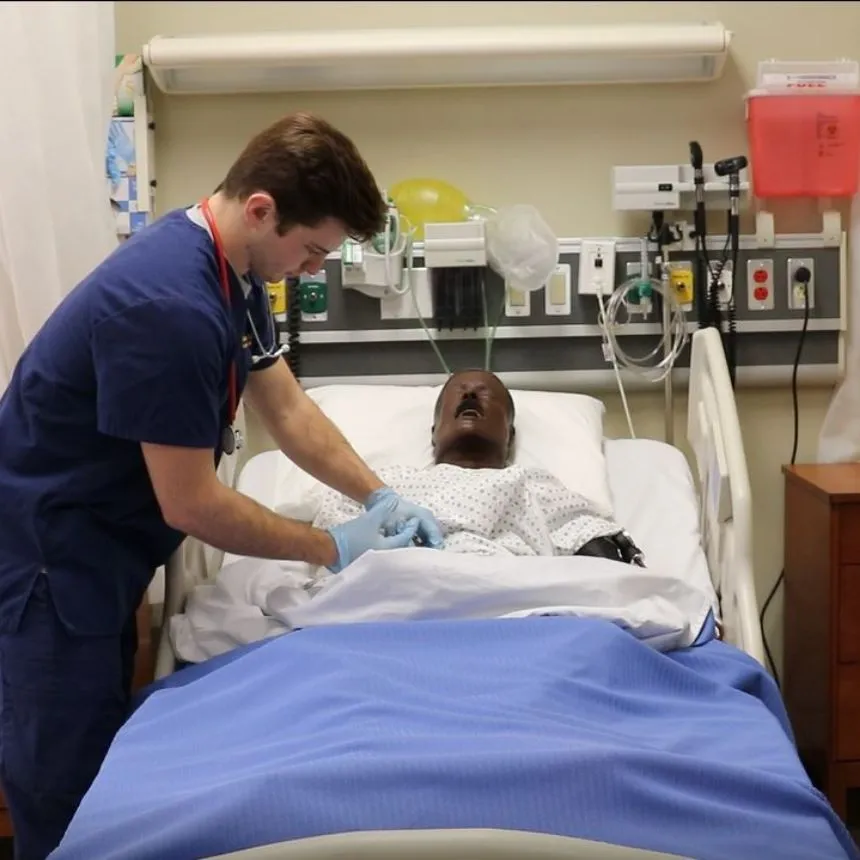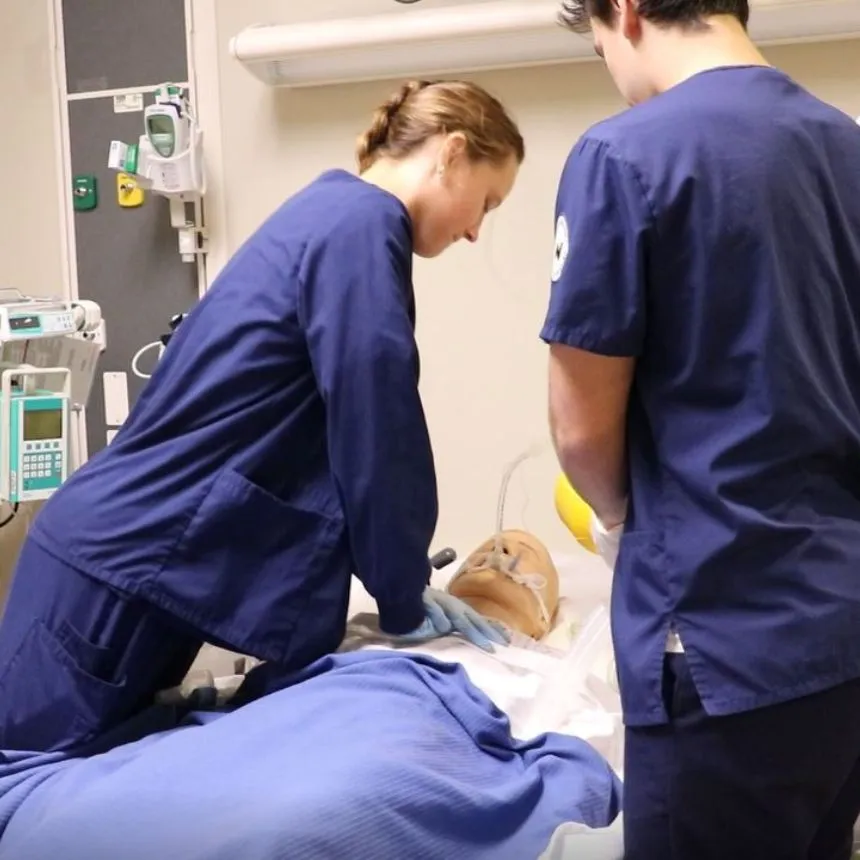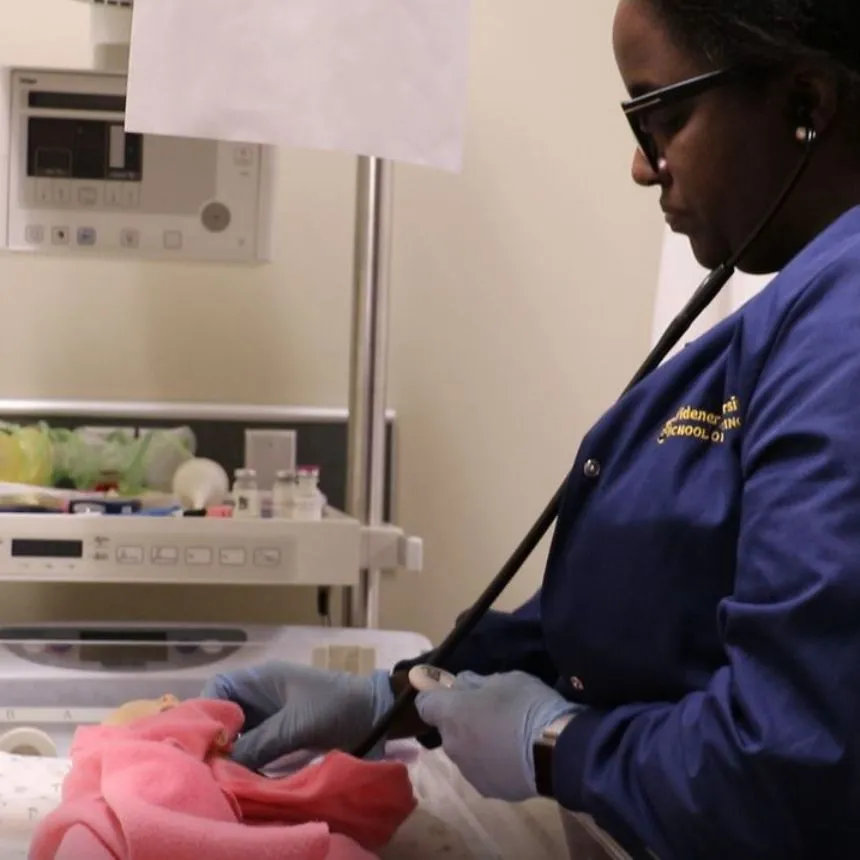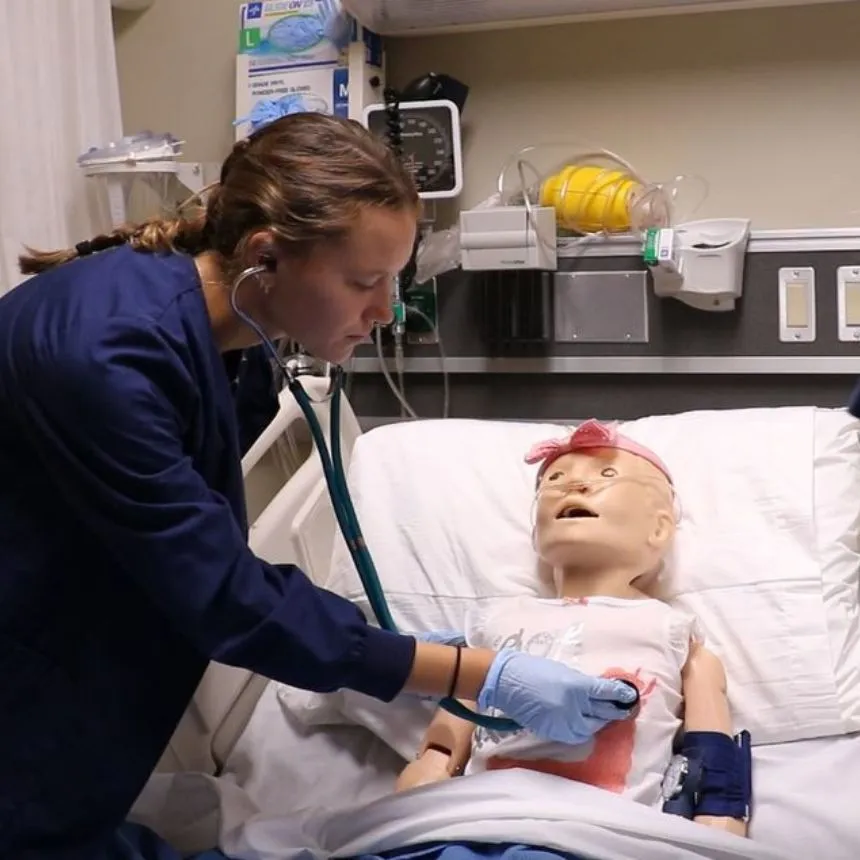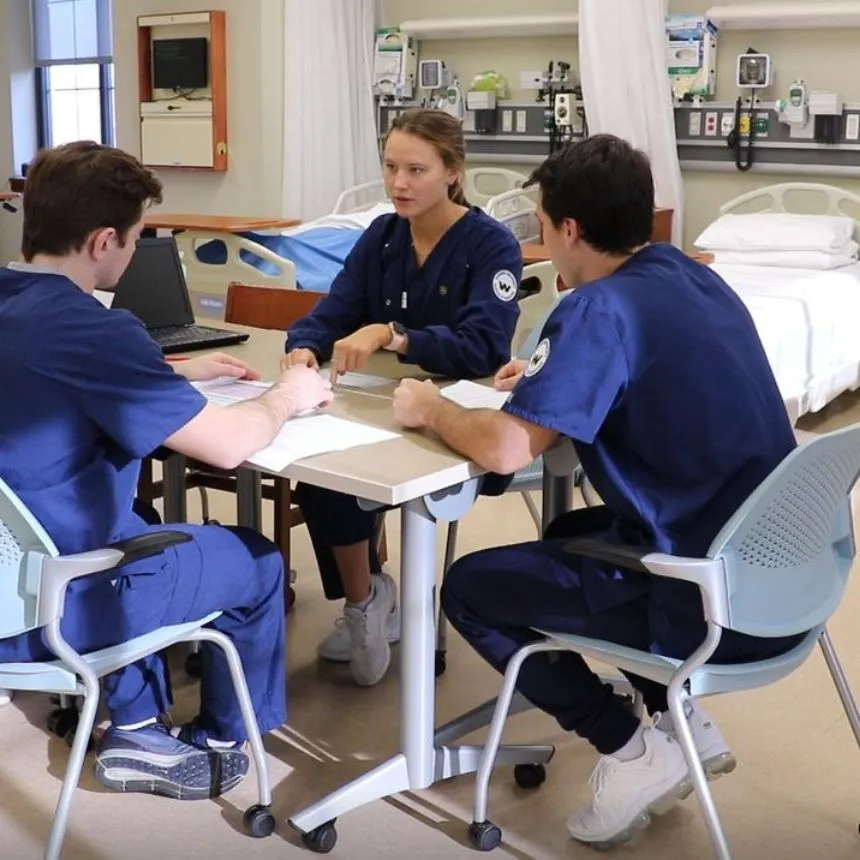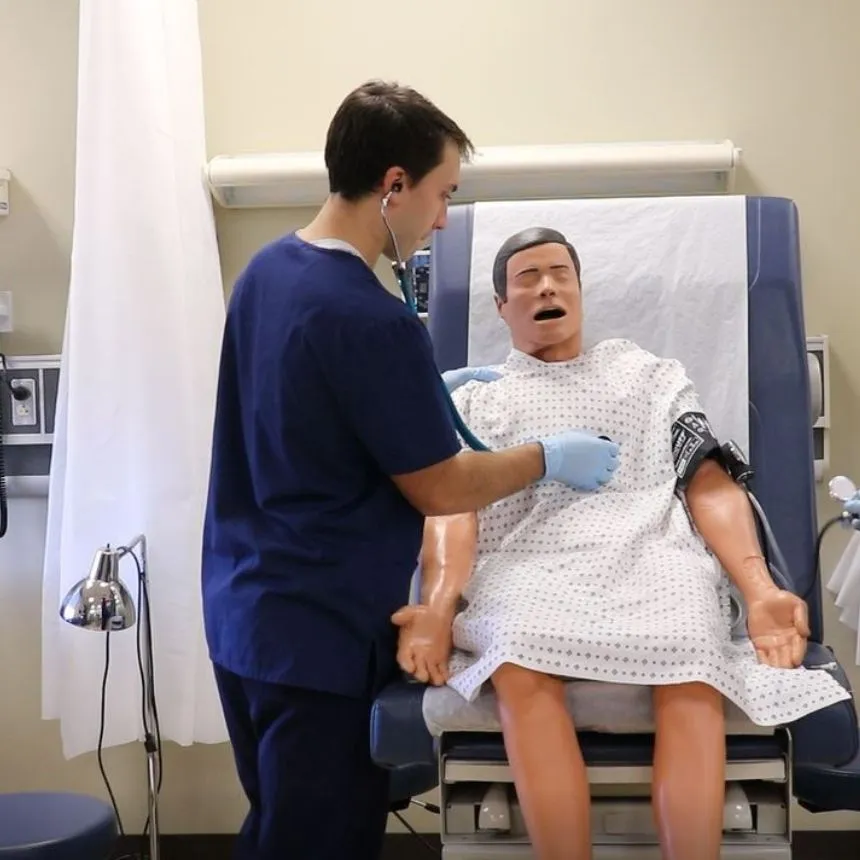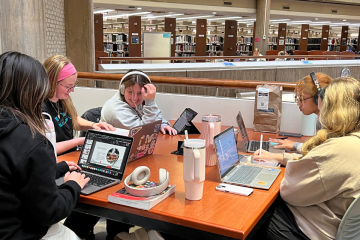Nursing Simulation that Shapes Clinical Excellence
Clinical experience is a paramount component of a nursing education. For Widener nursing students, the Center for Simulation provides access to hands-on clinical experiences well ahead of students stepping foot into a real-world clinical setting.
Located on the second floor of Founders Hall, the center puts students in a variety of clinical settings designed to mimic specific specialties. Spaces include a primary care office, OB/GYN unit, trauma/ICU unit, a pediatric unit, and an apartment suite.
“The simulation center provides both skill development and opportunities for learning clinical judgment. Guided by expert faculty, students have the opportunity to practice in a safe space and reflect on their learning,” said Anne Krouse, dean of the School of Nursing.
Courses and labs are designed to build competencies for students before clinical placements, which typically begin junior year for undergraduates. Introductions to the different specialties help students like Brenna Sharkey put textbook lessons into practice in a controlled environment.
“You can read so much in the textbooks but getting that hands-on component is where you get the experience,” said Sharkey.
According to the senior nursing student, a pediatric simulation lab taken ahead of a maternity clinical gave her the skills and confidence to perform a routine assessment with a real patient when the time came.
When I went into my maternity clinical, I had to do an assessment on a baby on my first day, but I knew how to do it because I was able to practice on the sim pediatric baby ahead of that situation. —Brenna Sharkey '23
The center opened in 2011 as a state-of-the-art facility providing students with the tools and technologies to safely engage in clinical practice. Today, the center continues to deliver high-quality simulated learning for students at the undergraduate and graduate levels, thanks to facility and technology updates.
With support from nursing alumni, including Marietta Mosco Borinski ‘80 and her husband Michael ‘82, two new spaces debuted in the center this fall.
According to Teresa Larmarra, director of the Center for Simulation, the revamped rooms were designed with the flexibility in mind.
“We designed the new rooms so that we could use the spaces either as a lab or a simulation,” said Larmarra.
Krouse added, “we have taken a flexible approach to simulation in our new labs. This allows for better use of the space that can change as the student learning need changes.”
Each lab, and its accompanying technology, immerses students in a real-world clinical scenario and gives them direct access to learn from the same equipment and technology used in hospitals. Soon, the high-tech mannequins and integrated camera systems will be joined by the latest virtual reality tools, which will further enable students to hone clinical skills and competencies.
We are looking to include virtual reality in these spaces in the future, which will give students a variety of clinical experiences using an oculus headset and haptics. Students will interact in the virtual world and get real time feedback. —Anne Krouse, dean of nursing
In addition to the leading technology and equipment, students learn alongside expert faculty and staff who offer meaningful guidance in a supportive and safe environment.
“If students go to clinical and struggle with a skill, not only do they come back for the assigned simulation, but we remediate them until they get it right,” said Lamarra.
Danielle Kobner, assistant director of the Center for Simulation, added that “it’s a safe, non-judgmental zone where we allow students to mess up.”
Senior nursing student Hannah Smith says that intentionally creating a space that invites students to make mistakes and learn from them is critical to the learning process.
“My favorite thing about the sim lab is that you know you’re not doing anything to a real person so you’re comfortable to make mistakes and learn,” said Smith.
And while achieving clinical proficiency is the leading objective in the center, Kobner explains that the in-person simulated learning teaches the interpersonal skills that are vital for nurses.
“You can’t learn every skill online like how to take blood pressure; you can’t be taught how to be empathetic or sympathetic online. Therapeutic touch and communication skills are so valued in the health profession and you need that in-person learning approach,” said Kobner.
Take a Look Inside the Simulation Center
See how nursing students learn by doing in the simulation center's different clinical settings and patient populations.

